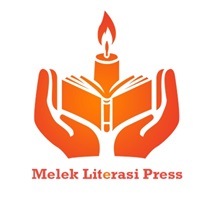ENHANCING EFL STUDENT ENGAGEMENT THROUGH DEEP LEARNING APPROACHES
Keywords:
Students' Engagement, EFL, Deep Learning, Teacher's Perspective , Junior High SchoolAbstract
This study explores the influence of deep learning strategies on student engagement in EFL classrooms and examines teachers’ perceptions of their implementation. Conducted at SMP N 2 Bandar, the research employed a qualitative phenomenological approach involving classroom observations, semi-structured interviews, and documentation. The findings reveal that strategies such as problem-based learning, collaborative tasks, reflective questioning, and scaffolded critical thinking significantly enhance cognitive, emotional, and behavioral engagement among students. Observable indicators included increased participation, group collaboration, on-task behavior, and curiosity-driven questioning. Teachers reported that these approaches encouraged more meaningful learning, boosted student confidence, and fostered greater ownership of the learning process. Despite facing challenges like limited time and diverse student readiness, teachers believed that deep learning fostered a more dynamic and student-centered environment. The study concludes that deep learning strategies, when applied consistently, can transform EFL instruction by making learning more interactive, relevant, and engaging. These findings offer practical implications for English teachers seeking to promote deeper involvement and long-term motivation in language learning.
References
Aditama, M G & Sugiharto, P. A. (2021). Improving Students’ English Pronunciation by Using Hypermedia in E-Learning Activity. EDUKASIA: Jurnal Pendidikan Dan Pembelajaran, 2(1), 117–126. https://doi.org/10.33399/edukasia.v2i1.41
Aditama, M. G., Sugiharto, P. A., Istiqomah, L., & Hisyam, F. N. (2023). Integrating Multiple Intelligence Test into Diagnostic Assessment in ELT. International Social Sciences and Humanities, 2(2), 358–363. https://doi.org/10.32528/issh.v2i2.250
Avendaño, M. (2023). Inquiry-Based Learning in EFL Classrooms: Fostering Engagement and Autonomy. ELT Research Journal, 12(1), 45–61.
Braun, V., & Clarke, V. (2021). Thematic Analysis: A Practical Guide. SAGE Publications, Inc.
Creswell, J. W., & Poth, C. N. (2018). Qualitative inquiry and research design: Choosing among five approaches (4th ed.). SAGE Publications, Inc.
Eny Winaryati, Zanaton H. Iksan, Rose A. Rauf, Budiono, Iwan Junaedi1, Dodi Mulyadi, Eko A. Purnomo, M. G. A. (2023). Teacher as Learning Educator and Researcher: Phenomena of Lesson Study Community Activities. Proceedings of the 1st Lawang Sewu International Symposium on Humanities and Social Sciences 2022 (LEWIS 2022), 1, 146–162. https://doi.org/10.2991/978-2-38476-078-7
Fredricks, J. A., Blumenfeld, P. C., & Paris, A. H. (2004). School Engagement: Potential of the Concept, State of the Evidence. Review of Educational Research, 74(1), 59–109. https://doi.org/10.3102/00346543074001059
Fullan, M., Quinn, J., & McEachen, J. (2018). Deep learning: Engage the world change the world. Corwin Press.
Griffani Megiyanto Rahmatullah a, Shanq-Jang Ruan Li, L. P.-H. (2025). Recognizing Indonesian words based on visual cues of lip movement using deep learning. Measurement, 250. https://doi.org/10.1016/j.measurement.2025.116968
Halil, N. I., Yawan, H., Hasanah, A. N., Syam, H., Andas, N. H., & Marhamah. (2024). A New Program to Foster Inclusion: Unraveling Language Teachers’ Pedagogical Practices to Differentiated Instruction. International Journal of Language Education, 8(2), 370–383. https://doi.org/10.26858/ijole.v8i2.64997
Herika, I., Yundayani, A., & Sundari, H. (2024). The Effect of Local Wisdom-Based Reading Materials on Students’ Motivation in Learning English and Speaking Skills at SMP Kartini 1 Batam. EduInovasi: Journal of Basic Educational Studies, 4(3), 1699–1733. https://doi.org/10.47467/edu.v4i3.4749
Kurniawan, R., Mulyani, T., & Saputra, H. (2022). Challenges in fostering student engagement in rural Indonesian classrooms. Journal of Language and Education Studies, 10(2), 113–124.
Mercer, S., & Dörnyei, Z. (2020). Engaging Language Learners in Contemporary Classrooms. Cambridge University Press.
Park, J., & Kim, Y. (2023). Promoting engagement in EFL through collaborative problem-solving and formative assessment. Asian EFL Journal, 25(3), 75–98.
Perdana, R., Apriani, A. N., Richardo R., Rochaendi, E., & Kusuma. (2021). Elementary Students’ Attitudes towards STEM and 21st-Century Skill. Elementary Students’ Attitudes towards STEM and 21st-Century Skill, 10(3), 1080–1088.
Pratama, A., & Asriyanti, E. (2020). EFL teachers’ adaptation in underprivileged schools: Pedagogical creativity amid scarcity. Indonesian Journal of English Education, 7(2), 129–142.
Pugu, M. R., Nurhayani, N., & Asy’ari, F. (2024). Implementation of Local Wisdom in Learning in Schools Around Rural Areas. Jurnal Ilmu Pendidikan Dan Kearifan …, 4(2), 105–116. http://www.jipkl.com/index.php/JIPKL/article/view/111%0Ahttps://www.jipkl.com/index.php/JIPKL/article/download/111/108
Seidman, I. (2019). Interviewing as Qualitative Research: A Guide for Researchers in Education and the Social Sciences (5th ed.). Teachers College Press.
Shofyana, M. H., Santoso, Y. I., Aditama, M. G., Yulianti, E. H., & Wibisana, M. A. (2024). Bridging Cultures: Integrating Game-based Learning based on Local Wisdom in ELT. Tell : Teaching of English Language and Literature Journal, 12(2), 73–89. https://doi.org/10.30651/tell.v12i2.23365
Suhendar, A., & Syakir, M. (2022). Exploring the role of hypermedia in fostering student engagement: Insights from English language classrooms in Indonesia. Journal of Language and Digital Learning, 9(4), 56–72.
Tan, C., & Koh, K. (2020). Teacher Professional Learning for the 21st Century: Challenges and Opportunities. Springer International Publishing.
Thompson, B. S. (2022). Contextualized Learning in Phenomenology: Cultural Perspectives and Educational Practices. Journal of Qualitative Inquiry, 38(2), 45–63.
Wahyuni, S., Nurhayati, L., & Hidayat, A. (2021). Challenges in Enhancing Student Engagement through Teacher Training. Educational Practices Journal, 38(4), 88–102. https://doi.org/10.1016/edu.2021.00438
Wang, A., Yu, S., Wang, M., Wu, L., Wang, D., & Huang, L. (2023). Promoting meaningful peer feedback among in-service Chinese language teachers in an online lesson study. System, 115(5), 103055. https://doi.org/10.1016/j.system.2023.103055
Wijaya A, H. T. & W. (2025). Implementasi Pendekatan Deep Learning dalam Peningkatan Kualitas Pembelajaran di SDN 1 Wulung, Randublatung, Blora. Indonesian Research Journal on Education, 5(1), 451. https://doi.org/10.31004/irje.v5i1.1950
Zhao, Y., & Tan, S. C. (2022). Student engagement through problem-based learning in multilingual contexts. Asia-Pacific Education Review, 23(2), 215–230. https://doi.org/10.1007/s12564-021-09696-3






